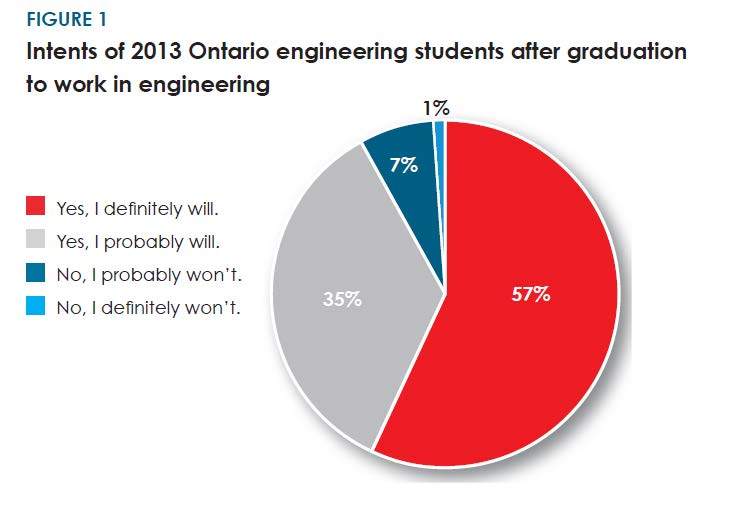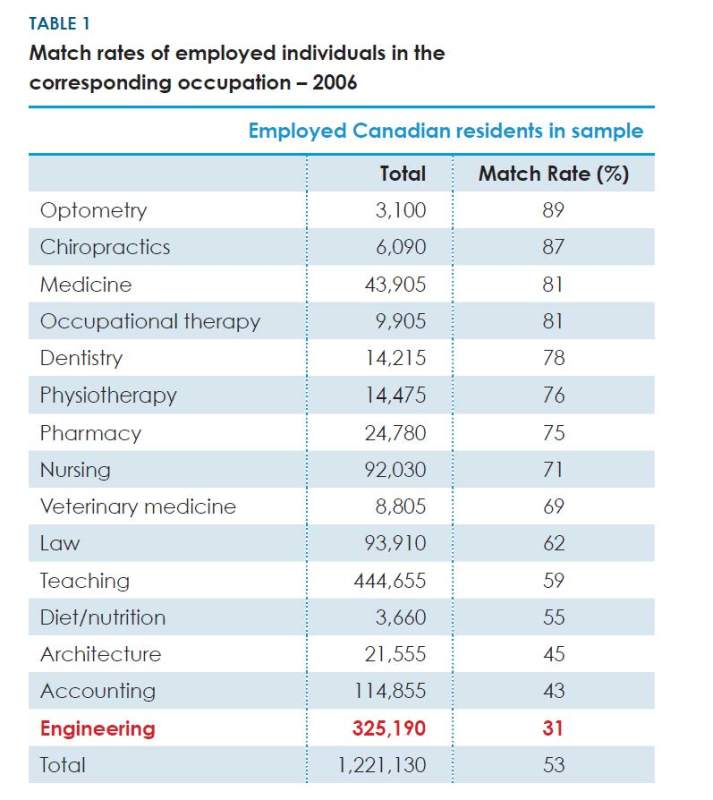@JNieman: here are two figures:
1) Intentions of 4th year engineering students in Ontario, surveyed by Ipsos-Reid on behalf of Professional Engineers Ontario. These surveys have shown results which are consistent through numerous years in which this survey has been completed.
2) Table 1: Match rates between education and employment in all the regulated professions in Ontario, from the 2006 Survey of Households. The 2011 Survey of Households, derived from the long-form census, was destroyed by our former Tory government, deliberately- they found it easier to hold ideologically-based positions when there was no pesky data to contradict them. The current government has fixed that for subsequent years, but the destroyed 2011 census will haunt us for years to come.
A few points:
1) Engineering students in 4th year overwhelmingly want to work as engineers.
2) Over twice as many engineering graduates work outside the engineering profession as work within it. In fact, about 33% of engineering graduates in Canada work in areas of employment for which a university degree of any kind, much less an engineering degree, is not required. That's a larger proportion than the ~ 30% of eng grads who work as enginers
3) The ~70% of engineering grads who work outside the profession, earn on average about 20% less than the ~ 30% who work as engineers or engineering managers
4) The match rate between education and employment for engineering is the lowest of all the regulated professions in the country, and not by a small margin.
The match rate decreases with years of experience, as we all know some people previously employed as engineers who leave the profession either by default or by choice. That fraction is also affected by the influence of immigration: while the situation for engineering grads in Canada in composite is bad, the situation for those Canadian engineers who were educated outside Canada is even worse- of that group, only ~19% work within the profession.
All this adds up to only one conclusion: the engineering labour market for engineering here in Ontario and in Canada in general is saturated, has been saturated for some time, and the saturation has been growing steadily for twenty years. It shows no signs of getting substantially better in the next decade, either.
All this information (the graph previously posted, plus the chart and table posted here) may be found in this report, which I've already linked to- by posting the graphs and charts here, I'm trying to reach the people who haven't bothered to read the report yet:
The report lists all its references and data sources.


